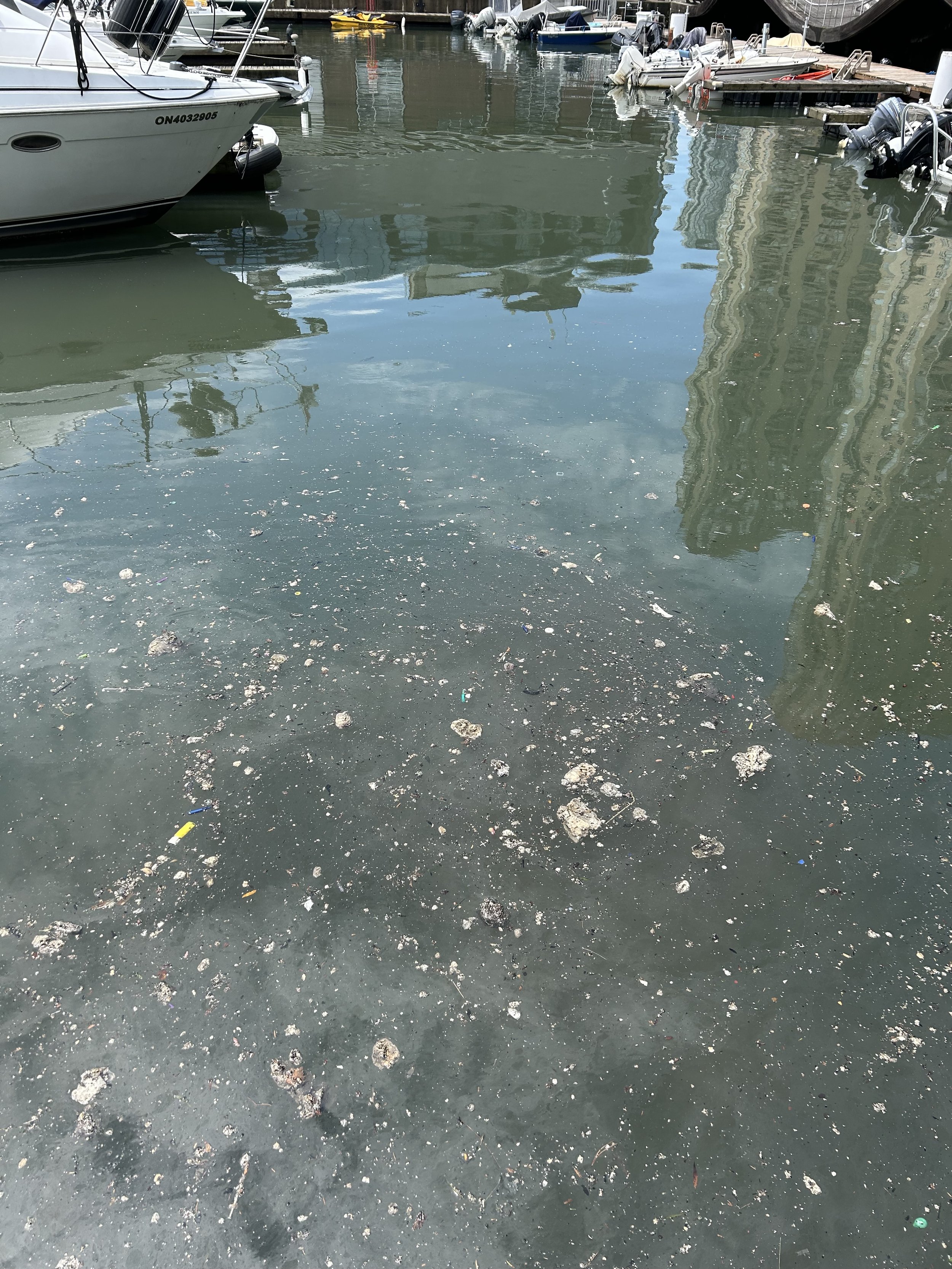3. Advocating for Real-Time Monitoring in the City of Toronto
This past summer in Toronto was a stark reminder of the United Nations-declared climate emergency. The city faced Hurricane Beryl, which delivered 97.8 mm of rain in just three hours—25% more than Toronto typically receives in the entire month of July. Unfortunately, community members were left uninformed about the impact of this extreme weather due to the city’s lack of real-time monitoring for combined sewer overflows (CSOs), a solution that we at Swim Drink Fish have been advocating for since 2018.
Extreme flooding, once considered a once-in-a-century occurrence, has become alarmingly routine. Events like these expose Toronto's persistent sewage problem. During Hurricane Beryl, the City of Toronto discharged an estimated 1.3 billion liters of partially treated sewage into local rivers, streams, and Lake Ontario—a volume equivalent to 500 Olympic-sized swimming pools. However, this estimate excluded untreated sewage released from CSOs, meaning the actual amount of pollution was likely much higher.
Year-round, Toronto discharges between 2 to 7 billion liters of raw sewage annually through its 94 combined sewer outfalls according to data published under Canada’s Wastewater Systems Effluent Regulation, required under the Fisheries Act . This pollution significantly degrades water quality, particularly in the Humber River and Western Beaches. In 2018, Swim Drink Fish determined that CSOs were occurring even during dry weather at several of Toronto’s premier beaches. Yet, the city continues to assert that CSOs occur “during periods of intense, heavy rainfall” highlighting a disconnect between reality and public messaging.
Flood evidence collected by Swim Drink Fish Staff on July 16th, 2024
The Case for Real-Time Monitoring
The issue of antiquated sewer systems is not unique to Toronto; cities worldwide face similar challenges. However, Toronto lags behind when it comes to transparency. Cities like Kingston and Vancouver have implemented real-time monitoring for CSOs, using this data to drive hundreds of millions of dollars in investments to upgrade sewer infrastructure and address pollution at its source. In contrast, Toronto relies on outdated reporting systems under Wastewater Effluent Systems Regulation and Environment Canada. These systems often have data delays of up to 22 months, leaving the public unaware of immediate health risks from exposure to E. coli, industrial waste, microplastics, and other contaminants, which in turn can lead to beach closures and harm aquatic habitats.
Real-time monitoring allows residents to make informed decisions about recreational water use and raises public awareness about the impacts of climate-related infrastructure challenges. It also fosters environmental stewardship and community engagement while aligning with broader initiatives such as the Biinaagami project for Great Lakes protection.
Kingston’s Real-Time CSO monitoring platform: https://utilitieskingston.com/Wastewater/SewerOverflow/Map
Community Advocacy for Change
On July 25, 2024, a letter signed by 178 community members and organizations was delivered to Dianne Saxe, Councillor for Ward 11 University—Rosedale. The letter called for the implementation of real-time monitoring for CSOs in Toronto’s Western Beaches. The requests included convening a meeting with stakeholders to discuss implementation, integrating real-time monitoring into the Western Beaches Public Realm Plan’s capital planning stage, and supporting the development of a Community Member Pollution Prevention and Advocacy guide.
Building on Past Successes
Swim Drink Fish has a history of advocating for greater transparency. After a major storm in 2013, the organization submitted an Environmental Bill of Rights (EBR) request, which led to the City of Toronto providing real-time sewage bypass reporting through its 311 system on X (formerly Twitter). It’s time to take the next step and expand this transparency to include CSOs citywide.
With more extreme weather events on the horizon, real-time monitoring is an essential tool for protecting public health, aquatic ecosystems, and Toronto’s reputation as a waterfront city.
Call to Action
Real-time monitoring is not just about addressing today’s challenges; it’s about safeguarding the future. Swim Drink Fish urges Torontonians to join us in advocating for this critical initiative. By signing our letter of support, residents can help ensure that the city prioritizes clean water for all. Future generations deserve access to safe recreational waters and a healthy Lake Ontario.



